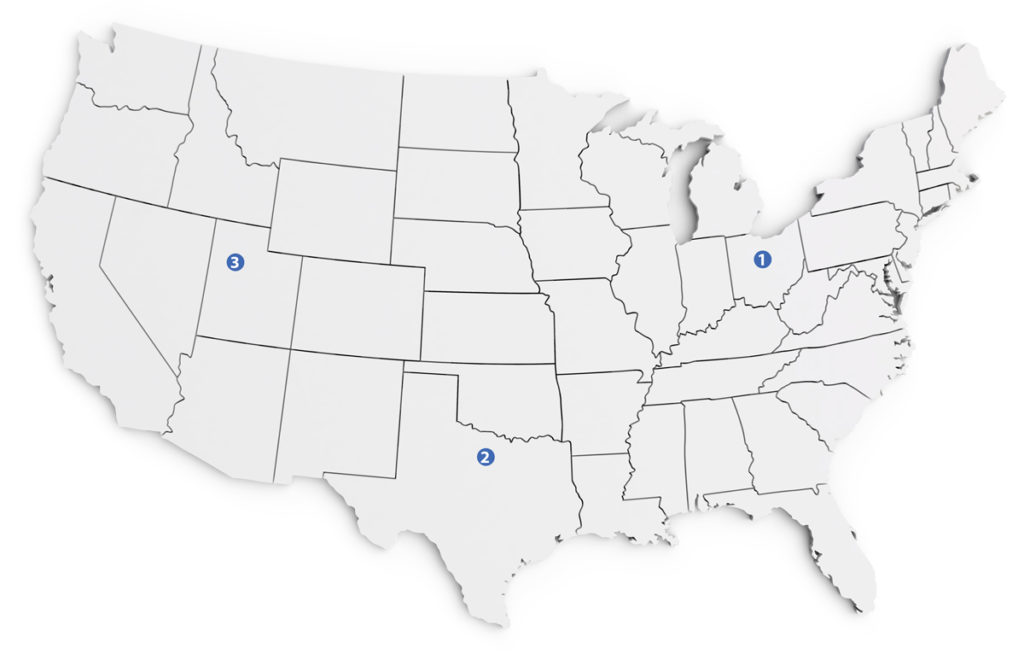Midwest: University hospitals, Cleveland Clinic join forces to prevent substance misuse and overdose deaths
Substance misuse and unintentional overdose deaths continue to be serious problems in the United States. The National Survey on Drug Use and Health showed most misused prescription drugs were obtained from family and friends, often from a home medicine cabinet.
The best way to dispose of unused or expired medications is to take them to an official disposal location. As part of the Drug Enforcement Administration’s National Prescription Drug Take Back Day on April 30, University Hospitals (UH) and Cleveland Clinic are partnering to host collection efforts at 17 locations throughout Northeast Ohio in addition to promoting collection at two police stations.

“University Hospitals and Cleveland Clinic have formed a collaborative alliance to advance the health of our communities by focusing on Northeast Ohio’s most pressing public health needs. Preventing substance misuse and overdose deaths are chief among these issues,” said Champ Burgess, Chief Pharmacy Officer at UH. “This Drug Take Back Day is just one example of our joint approach to mitigating the opioid epidemic and reducing unintentional drug overdose deaths because medicines that languish in home cabinets are highly susceptible to diversion, misuse and abuse.”
This event gives the public an easy way to rid their homes of potentially dangerous, expired, unused and unwanted prescriptions and over-the-counter drugs. Many of these medical disposal locations are open year-round.
“We are proud to be working with University Hospitals on a variety of initiatives to control the opioid epidemic in our communities. Collaboration makes us stronger and benefits the health of our communities,” said Samuel Calabrese, Chief Pharmacy Officer at Cleveland Clinic.
“Providing the public with a safe and convenient way to remove unused medications from the home is an important step in reducing the risk of accidental drug exposures as well as preventing drug misuse. That is why we are committed to making drug disposal locations accessible on Drug Take Back Day and every day.”
South: Baylor Scott & White Health appoints Steven Newton as chief growth officer
Texas-based Baylor Scott & White Health has tapped Steven Newton to serve as EVP and chief growth officer, effective April 25. In this role, Newton will drive enterprise growth, creating and enhancing customer-centric partnerships that help the organization advance its strategy.
Newton has nearly 35 years of healthcare experience – including almost 20 years in several of the system’s key geographies. He most recently led two North Texas regions, including six hospitals, and served as president of Baylor University Medical Center, one of the health system’s flagship academic medical centers. Since joining Baylor Scott & White in 2004, he has also served as president of Baylor Scott & White Medical Center – Grapevine and Baylor Scott & White All Saints Medical Center – Fort Worth.
“Steve is known as a trusted and progressive leader with an unrivaled knowledge of our markets,” said Baylor Scott & White CEO Pete McCanna. “His understanding of competitive opportunities across the state will guide us as we expand access to high-quality care for the millions of Texans we serve.”
Over the course of his tenure, Steve has led the development and implementation of high-performing regional growth plans, guiding his teams to improve patient experience and clinical outcomes.
West: Intermountain Healthcare and SCL Health complete merger
Utah-based Intermountain Healthcare and SCL Health, two leading nonprofit healthcare organizations, have completed their merger, creating a model health system that provides high-quality, accessible, and affordable healthcare to more patients and communities in Utah, Idaho, Nevada, Colorado, Montana, Wyoming, and Kansas.
This combination employs more than 59,000 caregivers, operates 33 hospitals (including one virtual hospital), and runs 385 clinics across seven states while providing health insurance to 1 million people in Utah and Idaho. With the close of this merger, Intermountain Healthcare is the eleventh largest nonprofit health system in the United States.
Mike Leavitt will serve as the new Board Chair for the combined organization. In previous roles, he served in the Cabinet of President George W. Bush as Administrator of the Environmental Protection Agency and Secretary of Health and Human Services and as a three-time elected governor of Utah.
The Board includes representation from the pre-merger boards of both Intermountain Healthcare and SCL Health. The most recent Intermountain Healthcare Board Chair, Gail Miller, and most recent SCL Health Board Chair, Michael L. Fordyce, will continue as members of the combined board.
Fordyce will serve as Board Vice-Chair of the Intermountain Healthcare Board and as Board Chair of the Intermountain region board based in Broomfield, Colorado, and Miller will serve as Board Chair of the new region board based in Salt Lake City.
The new organization, named Intermountain Healthcare, is headquartered in Salt Lake City, with regional offices in Broomfield, Colorado, and Las Vegas, Nevada.